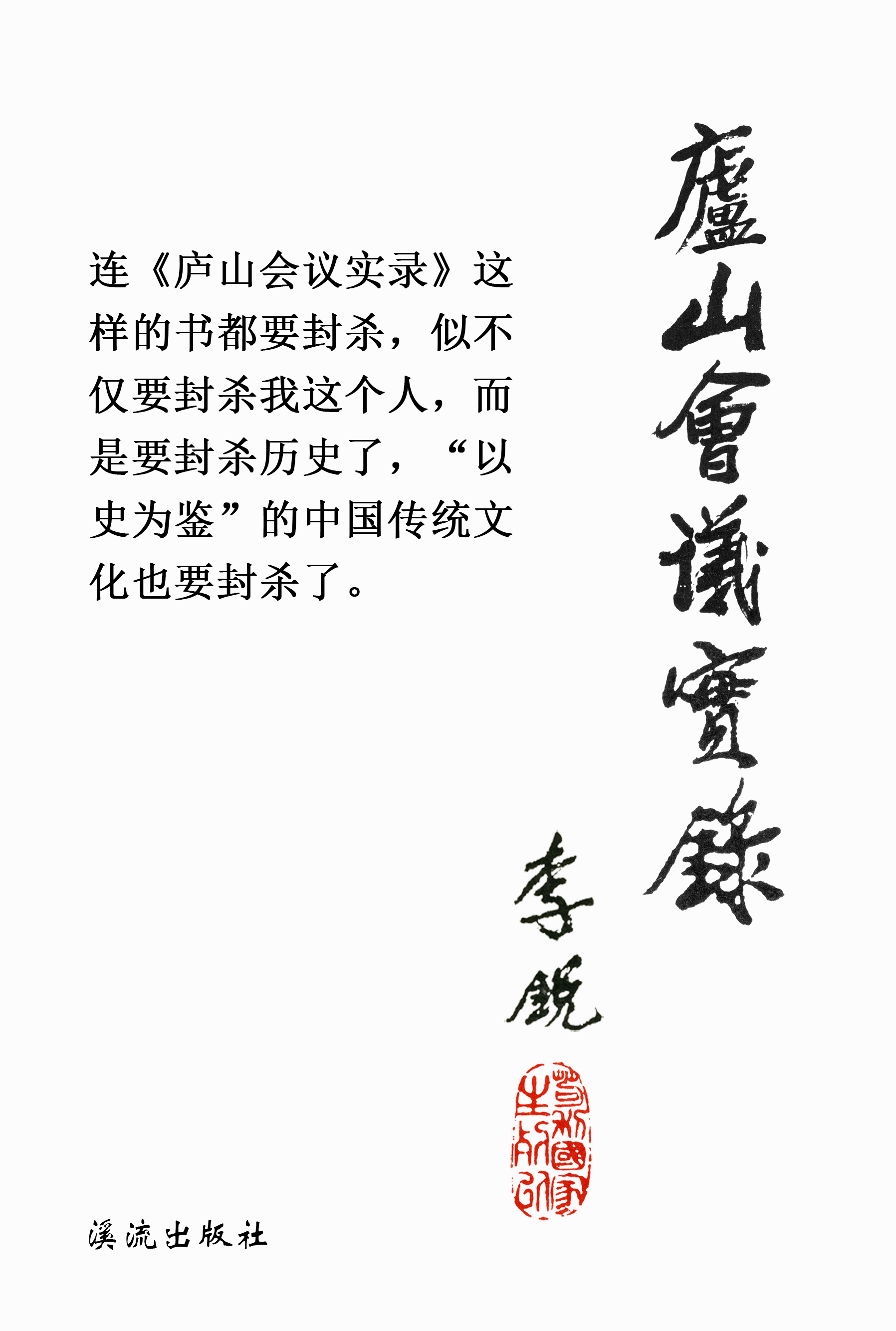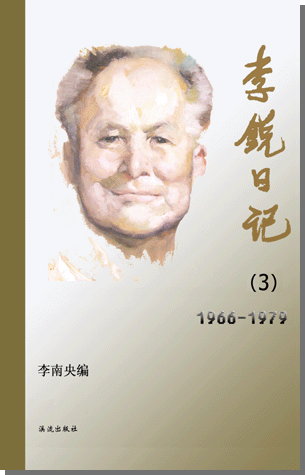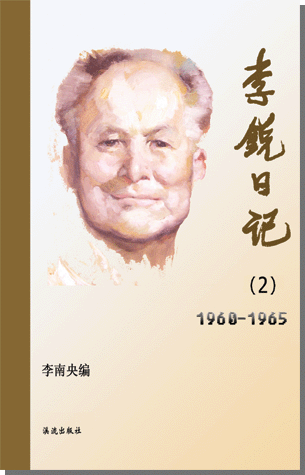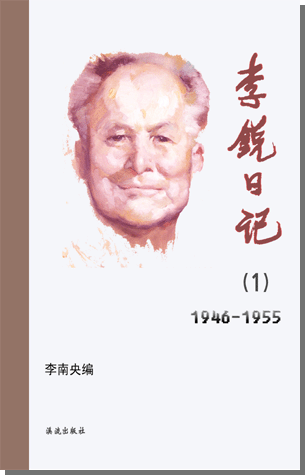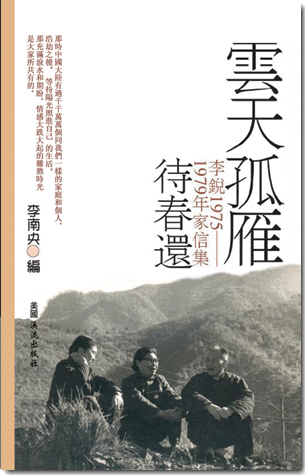A British admirer:
Few, if any, meetings in history have resulted in as many deaths as the Lushan Conference of the summer of 1959. It took place in the midst of the Great Leap Forward, and already millions of Chinese in the countryside had died from party's policy-induced famine.
Yet, initially, the tragedy of Lushan, was that a meeting designed to correct radical policy but ended in Mao determining to double down on the Leap.
Its author, Li Rui, is now a legendary figure. His diaries of 80 years, from Yan-an in the 1930s to his dissident years in Beijing before his death in February 2019 aged 101, provide unique, first-hand documentation of the crucial periods of CCP era.
But it seems to me that the record of the 45 or so days of the Lushan conference are Li's crowning contribution. Reading them for the first time I was hooked.
There are, of course, brilliant, incredibly well researched academic works on the Leap. But Li's Lushan Record brings vivid scene inside of a CCP, which was unknow before this book.
一位英国仰慕者:
历史上鲜有会议如1959年夏天的庐山会议那样造成千万人的死亡。庐山会议是在如火如荼的大跃进运动中召开的,其最初宗旨是纠正已经导致数百万农民死亡的党的激进政策,然而,其最终结果却是毛泽东决定加倍推进大跃进,中国继而发生了惨绝人寰的大饥荒。这本书的作者李锐如今已是一位传奇人物。他留下长达80年的日记,从20世纪30年代在延安的生活,到他在北京的异见岁月,再到2019年2月以101岁高龄去世,为中共时代提供了独特的第一手资料。但在我看来,对庐山会议45天左右的记录才是李锐最杰出的贡献。我第一次读到这些记录时,就被深深吸引。当然,有很多深入研究大跃进的优秀学术著作,李锐的《庐山会议实录》是第一部亲历者对外人所不可知的中共会议内幕的揭示。
